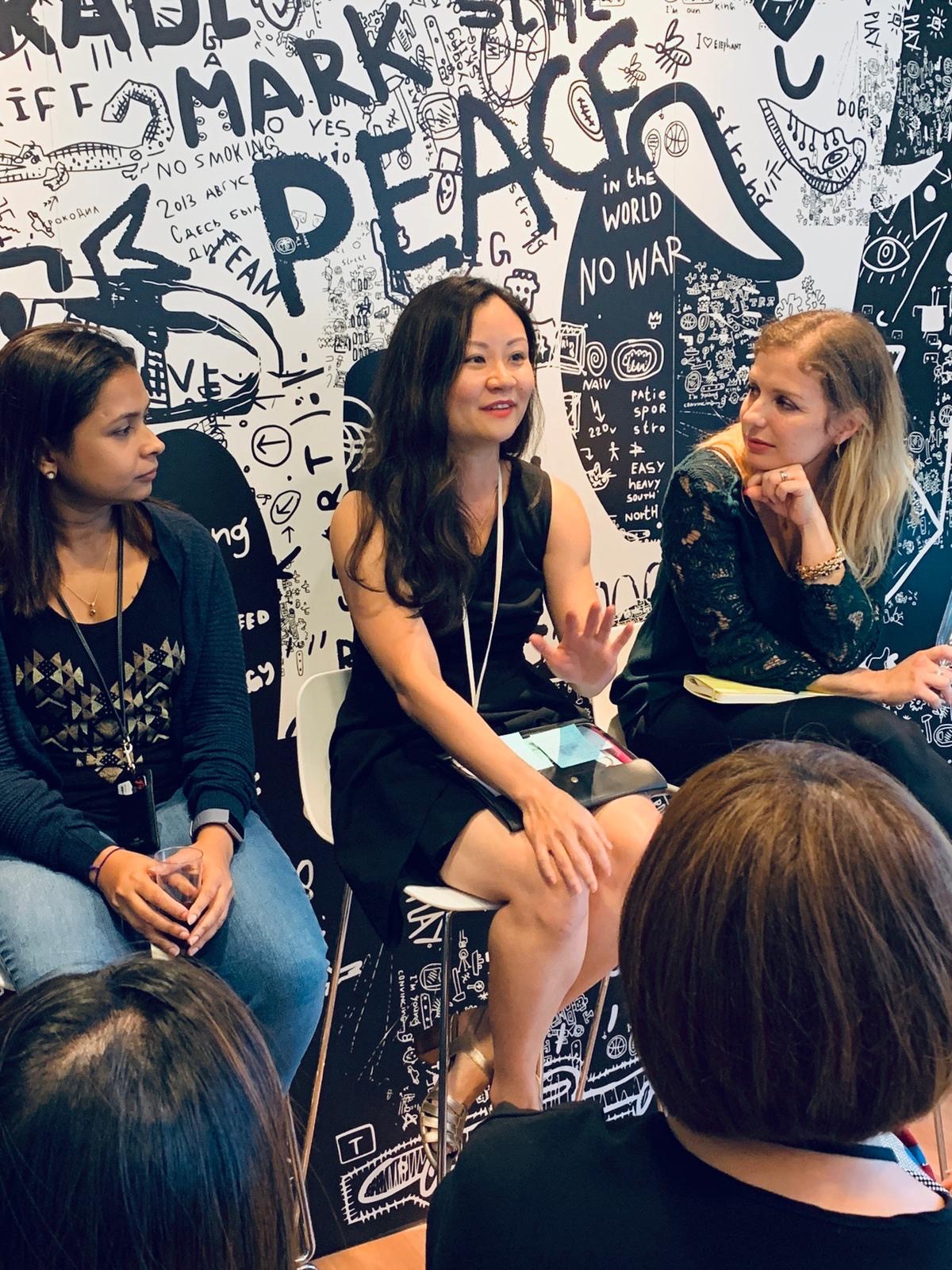[ALUMNI-INFO TEXT="“Transformation” is a sexy word, and I work at the Ministry of Health Office for Healthcare Transformation, also known as MOHT, where we push out innovative solutions for change.
Singapore has a good healthcare system with strong governance. However, the pursuit of efficiency can impede creativity and collaboration across agencies — at MOHT, we hope to unify these agencies with a shared vision of tomorrow. We dig deep to understand the real issues faced by stakeholders, and together, we create, pilot, and scale solutions to improve the health and well-being of the population."][/ALUMNI-INFO]
Within MOHT, I’m in the Integrated Health Promotion team, where we look at ways to influence individuals and communities, particularly vulnerable groups, to commit to health-promoting behaviours. We believe in a holistic approach to health and well-being — health is not only physical wellness, it is also about mental and social well-being. We take a socio-environmental approach to understanding and addressing needs, which means we take into account how, for example, the level of social connection and the design of the built environment can encourage an individual to exercise more, eat healthily, or be better able to cope with stress.
My portfolio is mental health and well-being, and because of COVID-19, we are developing a digital mental health triage tool that can help individuals easily assess their own state of well-being, and receive recommendations to better manage their emotions and stress levels.
There’s still a large stigma in society when it comes to mental health. We talk about being physically ill quite openly, but we would hardly say (or hear) something like, “I’m feeling depressed.” With our wellness platform, we want to take tiny steps towards making mental health conversations part and parcel of our lives. For starters, we want people to feel that doing a self-assessment of their mental state can be empowering, and that they can take actions like practising meditation, using mental wellness apps, or calling counselling hotlines to feel better.
Working at MOHT is interesting because of the diversity of our people. We have seconded public servants from different agencies like Urban Redevelopment Authority, Singapore Economic Development Board, and National Council of Social Service, to name a few. We have people with healthcare startup or management consulting experience, like myself. And we have healthcare professionals like doctors, nurses, and pharmacists in our midst. Each of these profiles comes with a different understanding of what “healthcare transformation” means, but it’s this opportunity for dialogue that makes for better solutions. We are constantly challenging ourselves and each other to think out of the box, yet be practical with our ideas. We’re not afraid to take a less trodden path, if we believe that we are shooting for the right stars.

Janice, who loves adventures and travelling, in Timang beach at Yogyakarta.
[ALUMNI-QUOTES TEXT="At heart, what sustains us is that we’re humble enough to learn from each other, willing enough to see different perspectives, and hungry enough to make change happen. Similarly, this was the case for my MPP cohort at the LKY School, where there were close to 90 of us from 60 different countries. Having to do group work with people from so many cultural backgrounds taught us how to see different perspectives, and what it means to build on each other’s strengths.
What I remember most about the LKY School is that they really invested in the students, both academically and towards our well-being. We jokingly called it the “School of Free Lunch” because there was always a buffet lunch waiting for us, if we were attending a talk by a guest speaker. Speaking of which, I was always amazed by the guest speakers the school managed to invite, including world leaders like Kofi Annan and our late Minister Mentor Lee Kuan Yew, who attended the school's fifth anniversary dinner. I am also grateful to the lecturers we had — they were prominent in their own right, but they remained accessible to us, giving generously of their time."][/ALUMNI-QUOTES]

Janice and some of her best friends in LKYSPP at Valedictory Dinner in 2011
To fellow alumni or students considering a public healthcare career: choose it for the right reasons. It is not an easy field because the outcomes are long-term, and it is (usually) not a path to riches. Aim to develop a repertoire of skills; as the healthcare sector evolves to adopt more technology, they will need people with the relevant skill sets.
Don’t be intimidated if you don’t have prior healthcare experience. I started out in social services, went into consulting, entered the tech world through an IT company that wanted to consult for the social sector, and now, I’m in healthcare transformation.
Not having prior experience can be an asset, and not just for healthcare. When you are in a certain role or environment for long enough, you will tend to see the barriers more than the opportunities. Conversely, when you are not from an industry, you may ask more questions, and be more willing to challenge norms. If you are seeking employment opportunities, tap into the LKY School’s network — it’s been useful for me.

Janice sharing about what it means to be a woman in tech, and how to find balance at work and beyond during International Women’s Day